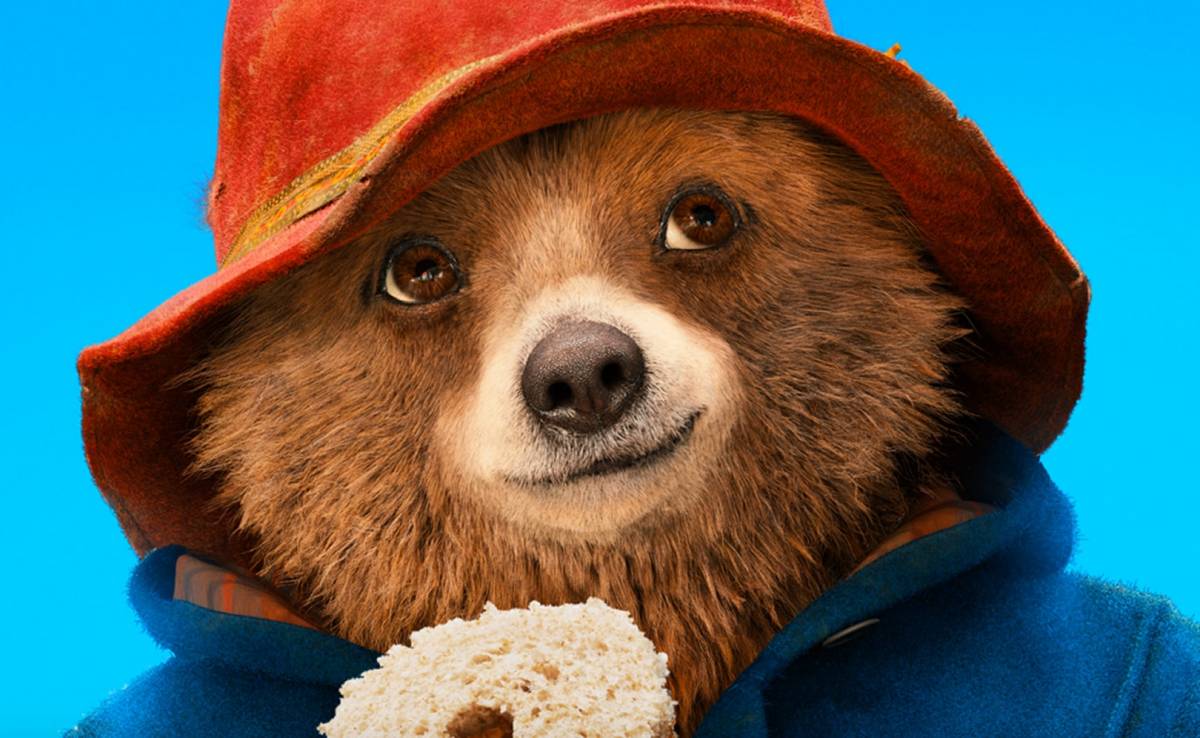Five years on from its US wide release, we look back on one of the 2010s’ most sincere movies.
It’s no secret that Paddington 2 is one of the highest rated movies on Rotten Tomatoes. It stands at a score of 99%, with only two critics giving it a rotten rating, though they admit it was mainly because they were impervious to its charms. Why was it such a hit amongst the critics, and lauded as one of the ultimate feel-good movies all these years later?
In a cynical and weary world, it’s grown increasingly hard to stay optimistic and kind. Our society teaches us that kindness is not rewarded, and that we should aim to be self-seeking and look out for number one. The constant well-meaning ways of Paddington, even in the face of adversity, is not something we can always maintain or bring ourselves to practice. One of the first things Paddington does in the movie is to joyously greet all his neighbours as he begins his day, and they return the sentiment. This is in immense contrast to most of our days, where an enthusiastic greeting might be viewed as bizarre or weird. Later on in the movie, when Paddington is no longer living with the Browns, we perceive a difference in the neighbourhood: everyone’s not as warm and accommodating, and there are more tensions than smiles.
Paddington doesn’t succeed a whole lot. When he sets about getting a job in order to pay for an expensive present for his Aunt Lucy, he takes a job at a barber, and makes a mess of a man’s hair. Even his foray into window cleaning isn’t an immediate success. We see Paddington take all these struggles in his stride, ever optimistic and eager to do whatever it takes to get his Aunt Lucy a gift he knows she’ll love. While some may view Paddington’s worldview as incredibly naïve, I think it’s admirable and brave. Failure isn’t always easy to shake off for most of us. We dwell on the mistakes we’ve made, the opportunities we’ve let go, and sometimes this prevents us from seizing new possibilities that might come our way.
Paddington hits an obstacle in his goal of working towards purchasing Aunt Lucy’s gift. The antique pop-up book of London is stolen from the Antiques shop, and even though Paddington was the one chasing down the culprit, he is the one who goes down for the crime. Paddington then finds himself serving time in prison, and through his acts of kindness and encouragement of Knuckles, the cooks the prison food, the prison environment also starts to change.
Yes, I’m aware that it’s highly unrealistic that the prison would start serving desserts like panna cotta and apple crumble, but the point that is emphasized here is the change we see in the prisoners. There’s a deeper sense of camaraderie, and much less antagonism present than what we saw at the beginning of Paddington’s stint. However, despite Paddington’s new friendship, his home is with the Browns. The Browns are committed to clearing his name, but while they’re working hard on the outside, Paddington isn’t privy to their efforts. His fears of abandonment begin to overwhelm him, and he believes that the same thing that happened to him when he was a cub might be repeating itself again.
At the same time, the movie charts a course of realism. When Knuckles and gang convince Paddington to escape prison with them, they tell him it’s because they want to help him clear his name. But as we discover, this isn’t the truth. As feel good as this movie is, it does remind us that the world isn’t all sunshine and rainbows, that people can lie to us and mean us harm, even when we have nothing to give them. Yet, Paddington is able to overcome his obstacles because of his kindness. His neighbours at Windsor Gardens help him in his time of need, and so do the Browns, who go to extraordinary lengths to clear his name. Even his prison inmates who abandoned him come back to help him when he needed them the most.
It would be remiss of me not to mention Hugh Grant, who does such a splendid job as the villain of the story. He plays a washed up actor who only does dog food commercials, and he steals the pop-up book in hopes of finding the treasure tied to it. He plays a bevy of different roles in this, and it is really quite delightful to watch him take on these different personas throughout the film. But his villainy isn’t that he stole a book. He exists as a contrast to Paddington. We’re told that he doesn’t get much roles because he is too self-consumed, and can’t work with people, while Paddington’s all about relationships and connections.
Maybe it’s hard to live by the adage that Paddington touts at every point in the film, after all, it seems that the world doesn’t award kind and polite people. But should we let that stop us? The world might just be alright if we tried.
READ NEXT: 10 Best Feel Good Movies on Netflix
Some of the coverage you find on Cultured Vultures contains affiliate links, which provide us with small commissions based on purchases made from visiting our site.

